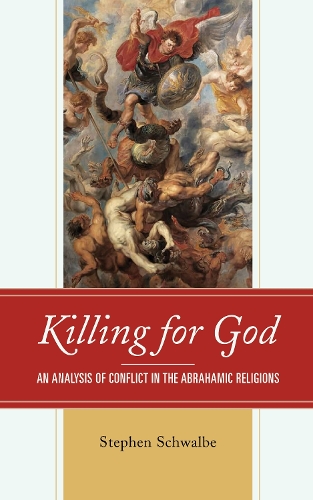
Killing for God: An Analysis of Conflict in the Abrahamic Religions
(Paperback)
Available Formats
Publishing Details
Killing for God: An Analysis of Conflict in the Abrahamic Religions
By (Author) Stephen Schwalbe
Bloomsbury Publishing PLC
Lexington Books
20th December 2021
United States
Classifications
Professional and Scholarly
Non Fiction
Terrorism, armed struggle
Religious intolerance, persecution and conflict
201.76332
Physical Properties
Paperback
182
Width 154mm, Height 219mm, Spine 13mm
268g
Description
Given the extremely high cost of overseas military operations today, the author offers readers scholarly insights as to what motivates kingdoms, countries, and groups to engage in religious conflict, beginning with those found in the Hebrew Bible. To do this, he analyzes three related religions, Judaism, Christianity, and Islam, to determine their similarities and differences regarding the killing of people. The areas of conflict analysis include Fundamentalism, Proselytization, Sacrifice (to include martyrdom), and Revenge (to include genocide). The insights of preeminent religious and political scholars are integrated into this comprehensive analysis of conflict involving religion, leading to an answer to the ultimate question: Is the killing worth it
Reviews
Much has been written on aspects of religious conflict over the years. Stephen Schwalbe provides a unique perspective, a golden thread, weaving theology, and religious justification for conflict from sacrifice to terrorism in a digestible and coherent manner. His works presents a very useful perspective in academic environments, but it is an excellent read. I highly recommend members of our Armed Forces deploying overseas read this as a primer and it be incorporated into Service School curriculums. -- Raymond Johns, Gen. United States Air Force (ret.)
When people and leaders of countries and movements use war and terrorism to respond to grievances, they often use religion and the Bible or the Quran to justify violence. Stephen Schwalbe in Killing for God: An Analysis of Conflict in the Abrahamic Religions argues convincingly that denying these connections deepens present and future conflicts. Confronting them requires us to accept that the Bible and the Quran contain many flawed ideas and traditions about religion and God compiled by human writers over many hundreds of years. He encourages the reader to contemplate that if religion is human-made, it [then] cant be used to justify killing someone else or even oneself. These simple insights are foundational to efforts to build a more peaceful world. -- Jack Nelson-Pallmeyer, University of St. Thomas
Author Bio
Stephen Schwalbe is adjunct professor at Columbia College.
